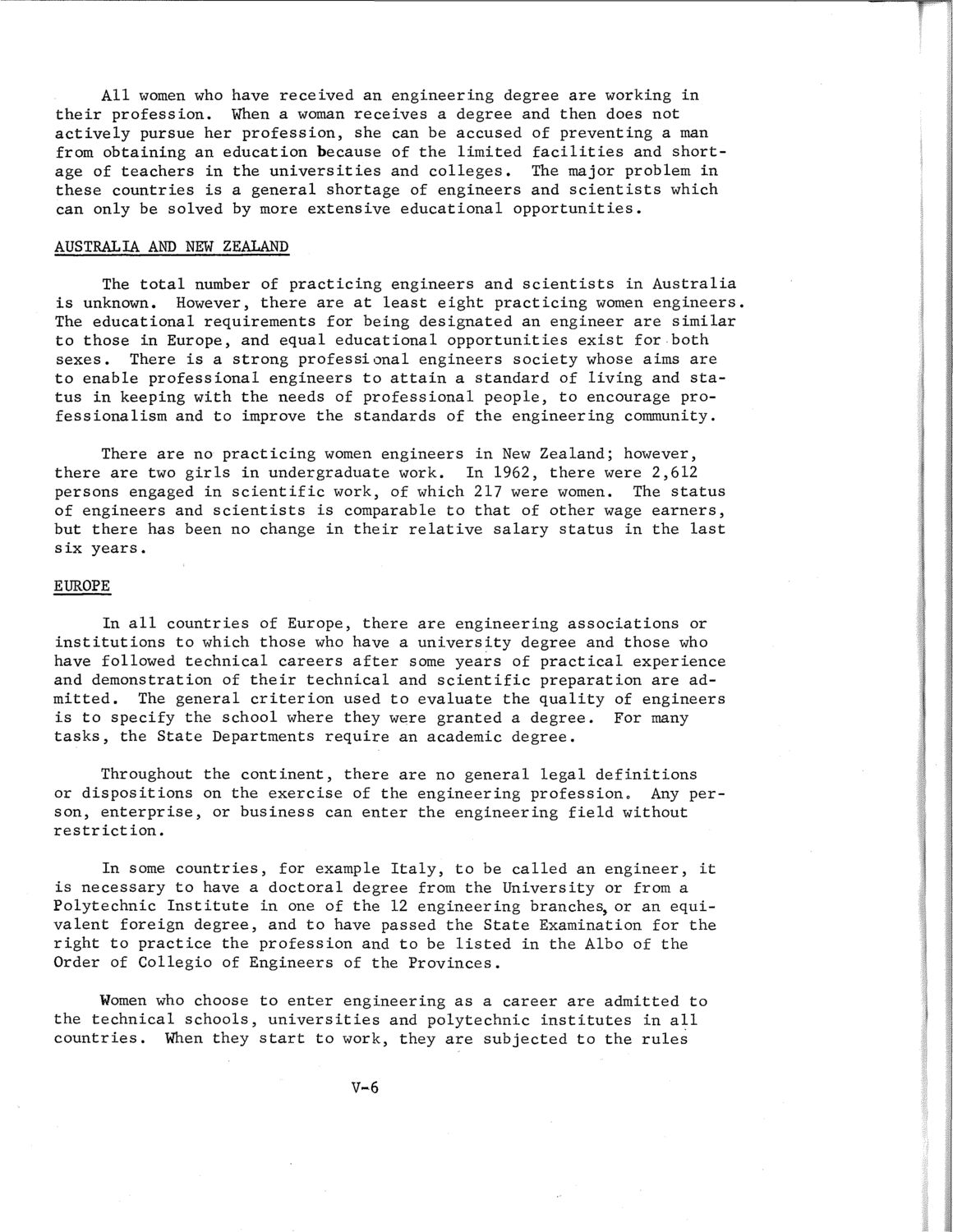| |
| |
Caption: SWE - Proceedings of the First International Conference of Women Engineers and Scientists
This is a reduced-resolution page image for fast online browsing.

EXTRACTED TEXT FROM PAGE:
All women who have received an engineering degree are working in their profession. When a woman receives a degree and then does not actively pursue her profession, she can be accused of preventing a man from obtaining an education because of the limited facilities and shortage of teachers in the universities and colleges. The major problem in these countries is a general shortage of engineers and scientists which can only be solved by more extensive educational opportunities. AUSTRALIA AND NEW ZEALAND The total number of practicing engineers and scientists in Australia is unknown. However, there are at least eight practicing women engineers. The educational requirements for being designated an engineer are similar to those in Europe, and equal educational opportunities exist for both sexes. There is a strong professional engineers society whose aims are to enable professional engineers to attain a standard of living and status in keeping with the needs of professional people, to encourage professionalism and to improve the standards of the engineering community. There are no practicing women engineers in New Zealand; however, there are two girls in undergraduate work. In 1962, there were 2,612 persons engaged in scientific work, of which 217 were women. The status of engineers and scientists is comparable to that of other wage earners, but there has been no change in their relative salary status in the last six years. EUROPE In all countries of Europe, there are engineering associations or institutions to which those who have a university degree and those who have followed technical careers after some years of practical experience and demonstration of their technical and scientific preparation are admitted. The general criterion used to evaluate the quality of engineers is to specify the school where they were granted a degree. For many tasks, the State Departments require an academic degree. Throughout the continent, there are no general legal definitions or dispositions on the exercise of the engineering profession. Any person, enterprise, or business can enter the engineering field without restriction. In some countries, for example Italy, to be called an engineer, it is necessary to have a doctoral degree from the University or from a Polytechnic Institute in one of the 12 engineering branches, or an equivalent foreign degree, and to have passed the State Examination for the right to practice the profession and to be listed in the Albo of the Order of Collegio of Engineers of the Provinces. Women who choose to enter engineering as a career are admitted to the technical schools, universities and polytechnic institutes in all countries. When they start to work, they are subjected to the rules V-6
| |